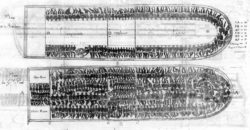poets teach us about mourning, ghosts, memory, and birth

Cherokee author, poet, scholar and activist Qwo-Li Driskill is a Colorado native, earning their bachelor’s degree from the University of Northern Colorado. Following that, they went on to receive their M.A. from Anitoch University Seattle and a Ph.D in Rhetoric and Writing from Michigan State University.
Driskill has published numerous essays, pieces of creative writing, and two books. The book Asegi Stories: Cherokee Queer and Two-Spirit Memory was published in 2016. In this book, Driskill paints a picture of Two-Spirited persons, going back to early colonial and Cherokee history to better understand the way Native Americans viewed gender and sex before colonization.
As Driskill’s book explains, “In Cherokee, Asegi udanto refers to people who either fall outside of men’s and women’s roles, or who mix men’s and women’s role.” Ultimately, Driskill’s goal is a “re-storying in the present” through a “retelling and imagining of stories that restores and continues cultural memories.”
Before the colonization of the western world, Cherokee and other Native American cultures did not identify gender on the binary recognized by western culture as man and woman. This “term ‘Two-Spirit’ is a contemporary term being used in Native communities to describe someone whose gender exists outside of colonial logic…[and] references Indigenous traditions for people who don’t fit into rigid gender categories.”
In Driskill’s book, we learn that before 1868 “the concepts of ‘heterosexuality’ and ‘homosexuality’ did not exist” and they were terms created by Karoly Maria Kertbeny. In short, these concepts “are recent European and colonial inventions” that we cannot impose upon different cultures, especially colonized Native Americans.
Since the publication of Asegi Stories, Driskill has added new approaches and language to queer studies conversations, providing a space that fits Cherokee and Native American persons. By reading through colonial texts, Driskill helps us understand the colonial lens imposed on the Native Americans, and how that has shifted sex and gender identity for many Two-Spirited persons.
Driskill’s careful interweaving of Cherokee and colonial perspectives provide Two-Spirited persons a re-written history. Now, those people struggling inside the western binary and gender constructs can return to their cultural beliefs, and learn how to re-interpret their identity in light of those cultural traditions.









